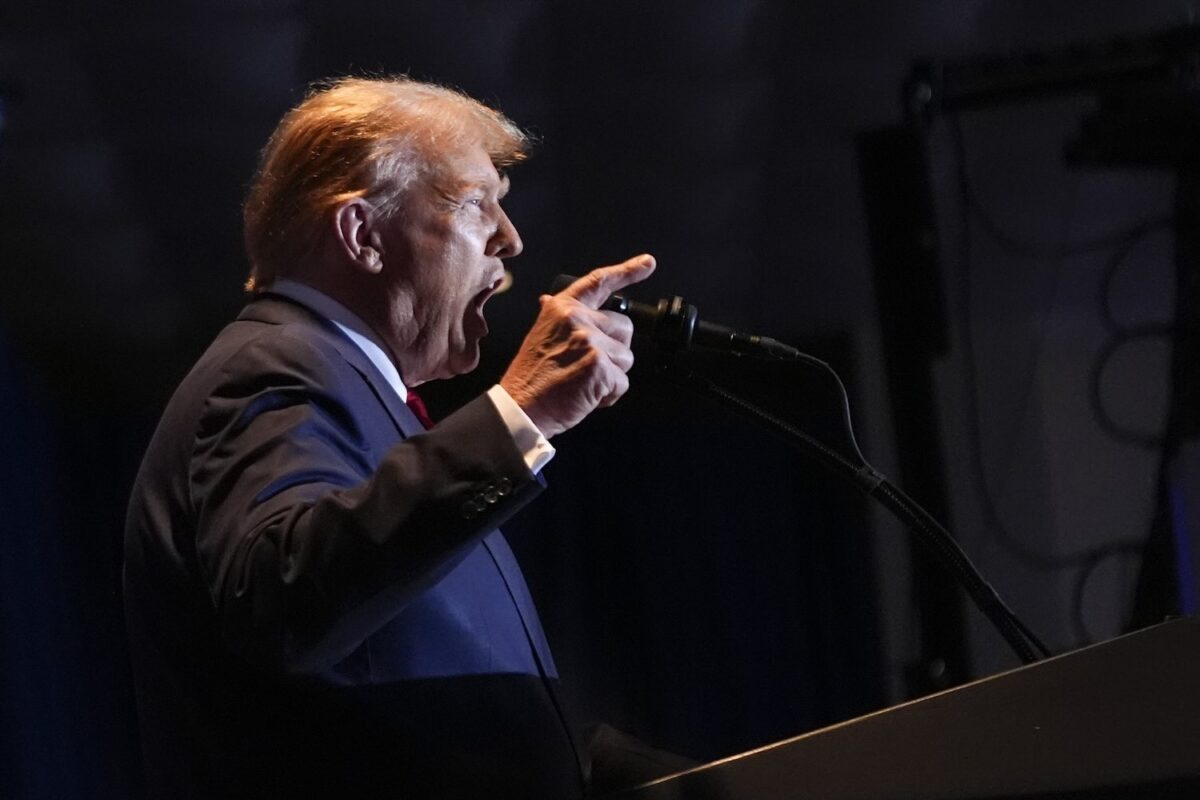The re-election of Donald Trump as US president – a charlatan, fool, felon and climate denier captured and paid for by the fossil fuel cartel – is a bitter irony after the devastating climate-change driven floods that smashed parts of the southeast US recently.
Trump’s ‘drill baby drill’ climate and energy ‘policies’ are a disaster for the nation, for intergenerational equity and equality, and will impact global efforts to mitigate climate change.
It is likely that he will undermine the Paris Agreement, as he did in his previous presidency, reduce support for renewables, close down the NOAA which monitors emissions, roll back environmental protections and fossil fuel industry regulation, and give free rein to big coal, oil and gas.
He will potentially trash key parts of President Biden’s landmark green new deal Inflation Reduction Act, and the unprecedented $1 trillion investment into economic decarbonisation, including cleantech industry development and incentives for consumer clean energy resources.
Trump’s promised tariffs on cleantech imports such as EVs and solar directly from China, and indirectly from ASEAN and Mexico, will do untold harm to US consumers already slammed by cost of living pressures, to the economy more broadly, and to the US’s global geopolitical standing.
Nevertheless, despite this crushing setback for US decarbonisation, the global energy transition is inevitable, inexorable and accelerating in many countries across the world. The US will be isolated and will now certainly lose the global cleantech race.
China wins.
China is the world’s #1 emitter, but it is accelerating its energy transition at unprecedented speed and scale as it leads in R&D, investment, manufacturing, deployments and exports across all cleantech fronts: solar, wind, batteries, EVs, hydro and grid.
It’s the biggest decarbonisation story on earth, with overwhelmingly positive implications for global emissions reduction.
China met its 2030 renewables targets this year, six years early. It is increasingly likely its national emissions will peak early, in 2024, as firmed renewables deployments grow at an astonishing rate and construction activity wanes.
Its reach extends globally as it pours billions of dollars of investment into renewables and cleantech manufacturing and projects around the world from Thailand to Hungary to Morocco – some US$120bn since 2023 across every continent, including in the Global South.
This remarkable progress will continue unabated despite the outcome of the US election – in fact, China will simply increase its global lead, and possibly leverage US isolationism to work more closely with the EU in a joint race to the top, leveraging their emissions trading schemes and possibly even with the rollout of a China Carbon Border Adjustment Mechanism (CBAM) to extend the EU CBAM.
China’s cleantech manufacturing overcapacity, e.g. of batteries, solar, wind and EVs, has triggered a massive deflation in prices for these products globally, with price drops of 60% for solar modules, 50% for battery cells and double digit declines in the price of EVs over the last year, increasing their accessibility for rapid and widespread deployment.
As Ford wanes, BYD booms. This dynamic is a principal enabler of global energy transition, unaffected by the US election result.
Price wins.
In addition to these reductions in capital costs of deployment, we know that firmed renewable energy is the cheapest energy for consumers and industry alike, with the US having had unwavering bipartisan support for its renewable energy investment tax credit for more than a decade.
The majority of the massive wave of new US battery and EV factories are in Republican states. This means Trump’s election is not likely to reverse all the gains made over the last administration.
It is therefore conceivable that some of the momentum now ‘baked in’ to Biden’s Inflation Reduction Act may be sustained.
Nevertheless going forward, the impacts on private investor confidence in the US of the trashing of clear, certain ambitious and forward-thinking energy transition policy underpinned by a nation-building level of strategic national interest public capital cannot be overstated, alongside the catastrophic consequences for the nation’s emissions profile.
Countervailing this, the global investment picture more broadly is promising. The IEA reports that global investment into cleantech is double the capital spent on oil, coal and gas combined, reaching ~US$2tn in 2024.
Capital flowing into the US over the last few years chasing the IRA will now likely flow to jurisdictions aligned with long term sustainable growth goals.
Chile just announced the largest solar and battery deployment in the world (outside China), at 2GW of solar and a 11GWh battery energy storage system (BESS).
And the Philipines just announced a 3.5GW solar project supported by a 4.5GW BESS. And Saudi Arabia just awarded a 3.7GW solar tender at a record low US$12.90/MWh. For those reasons, the transition is unstoppable.
The IEA’s October 2024 World Energy Outlook reaffirmed that we are in the process of a profound global shift with momentum on renewables additions accelerating at what it calls an ‘unprecedented rate’.
It projects that demand for all fossil fuels will peak this decade, before 2030; and that the surge in renewables is ‘more than enough’ to cover growth in global electricity demand and ‘push coal-fired generation into decline’.
By the decade’s end, the IEA says, global economic growth can be sustained ‘without using additional amounts of oil, gas or coal’.
The legion of communities, advocates, investors, corporates, governments and ordinary people across the world working to secure a safe climate, equitable access to clean energy and economic prosperity for all, and, critically, to honour our obligation to intergenerational equity, will continue undeterred, as has always been the case.






